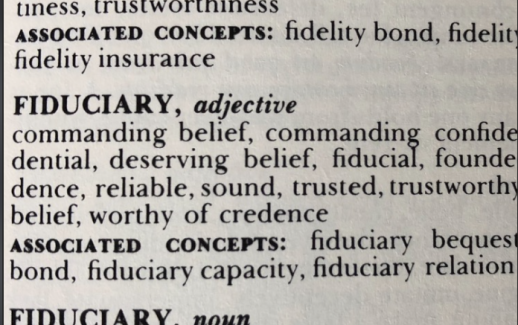Set-Up: President Biden meets with President Xi Jinping before the G20 Summit on November 14th. Chinese leadership knows Taiwan is a vital manufacturing, trading, and freedom partner for the United States in the Far East. Hence, if China assaults Taiwan it knowingly attacks a U.S. vital economic national interest in its supply chain. Recent saber rattling from Xi Jinping puts the issue out front.
In the context of such threats, Admiral Charles Richard, head of the U.S. Strategic Command warned last week that the state of U.S. nuclear and conventional deterrence is eroding while China rapidly acquires, steals, undermines, and supplants the United States’ capabilities, alliances, partnerships, and vital national interests. Admiral Richard predicted China could trigger a long war if it attacked Taiwan.
Argument: If Beijing knew that a takeover of Taiwan would trigger a proportionate, measured U.S. takedown of similarly scaled and valued vital Chinese national economic and supply chain assets abroad (“Asset Retirement Countermeasures” or ARC), it could be a distinct deterrence buffer against open war over real estate. By communicating assured lost asset value for Beijing in mirrored increments to Beijing’s destruction of U.S. economic and supply chain assets, a predictable cost calculus abroad will be added to the direct risks of loss inherent to a Chinese military campaign against Taiwan.
Inherent Costs Discussion: Inherent direct costs of invading Taiwan would include but not be limited to: direct military losses; financial costs; damaged trust with Asian and Pacific states or island possessions unsure whether Beijing will eventually do the same to them; newly galvanized trade and security relations between the West and such nations; damage to or loss of militarized assets in the South China Sea; the prospect of destroyed and sabotaged Taiwanese infrastructure, industrial machinery, goods, processes, and properties sought by invasion; internationally-imposed sanctions from friends and trade partners of Taiwan; risk of escalation to wider war regionally; opportunity costs in all lost assets including time, labor, and military force; lost current and future human capital value; health care to support disabled veterans and others; lost future investment; potential explosion of regional insurgencies; instability at home; and unintended consequences and costs of possible escalatory or backfiring behaviors by proxies such as North Korea. There is a stalking risk of escalation to exponentially wider warfare including the nonsensical strategic contradiction of mutually assured destruction.
An implied strategic diplomatic and commercial cost of conquest: Beijing would lose Taiwan as a peaceful, valuable bargaining chip with the West it has possessed for decades for the pride of the island’s possession. If lost, it would leave China with the erratic Kim Jong Un regime of North Korea as its toxic, expensive, and limited bargaining chip at risk of blowback at its border, even as opportunistic, restive Eurasian nations and stateless ethnicities jockey for advantage as Russia weakens. These changes put the Belt and Road Initiative at risk.
Working and playing by fair rules with free nations can retire these cascading risks.
Internal Pressures on Xi Jinping: Countering today’s imperial-expansionist influence over Beijing are historic Chinese leadership traditions that value head-down, industrious behaviors supporting trade strategies sustaining prosperity for the people of China and their ruling imperial party castes and cadres. The pacification, unification, and funding from such is key to the unity needed for bona fide national defense and governing stability versus uncharacteristic global imperialism, a different animal.
The intense, nationalistic animus punishing fellow Chinese such as that during Mao’s decade of Cultural Revolution last century, at Tiananmen Square, and in today’s high-tech totalitarian, authoritarian, and adventurist era of Xi Jinping have proven most successful in coercing Chinese at home and abroad to comply with Beijing’s imperial will and vision but not other cultures and countries with established national, cultural, or religious identities.
Given intense imperial nationalism in Xi Jinping’s vision and rule more than internal pressures and external sanctions will be necessary to establish a layer of incremental deterrent balance between China and the U.S. to obsolesce Beijing’s Taiwan invasion calculus. This requires clear messages to Beijing that economic assets equivalent in value to a lost, vital Taiwanese trade and manufacturing partner for the U.S. will be removed from China’s balance sheets if China invades or dominates Taiwan.
Politicized Overestimations of Economic Necessity
China threatens Taiwan in part for fear that Taiwan can do a better job than mainland China in meeting U.S. and other free nation manufacturing and trade needs yet not only that, enable the U.S. to better compete with China for global markets, including emerging nations’. Forcing Taiwan to serve Beijing’s imperial will would be a self-guarding, anti-competitive, monopolizing move opposite of China’s liberalization under Deng Xiao Peng that provided foundations for Xi’s later distribution of prosperity. Yet without the liberalization that led to it, the continuing prosperity is less sure absent military mercantilism that is not realistic in today’s technological environment.
Discussion of Asset Retirement Countermeasures
Economic and supply chain assets and their values are features in the power scape between Washington D.C. and Beijing amenable to incremental rational deterrence as targets by degrees and means, from non-kinetic to kinetic.
Touching on a deep channel in China’s historic leadership values sustaining prosperity over expansionist gambling and excessive tension-ratcheting controls at home,1 the U.S. and its allies could design a measured, quantifiable asset retirement approach as a deterrent buffer layer against the riskiest proposition for Beijing and Washington: open war with all of its costs, waste, and unintended consequences. Beijing appears to be betting that the U.S. fears open war far from home after Afghanistan and will only sanction China but not enter into all-out war and risk its naval assets. Yet maybe the U.S. does not need to worry about that if using other measures.
Without discussing specific Chinese assets around the world, suffice it to say that China’s global supply chains are also vulnerable to U.S. capabilities. That fact, properly understood as connected to the treatment of Taiwan, can help cooler heads prevail with greater reason to establish and follow fair mutual rules for peaceful trade and competition.
The Future Look
By decoupling in national security business segments and resuming trade supportive of civilian needs and civilization, the U.S. and China could avert immense waste of assets in favor of each confronting the larger pacing, existential threats of planetary decline and resource renewal, plus the urgent need for poly-mutual, responsible space travel, orbital hygiene, exploration, and development. This approach could also set the stage to end wasteful tariffs.
Perhaps a vignette illustrates the principle of prevention that Xi Jinping has the power to implement as a greater guarantor of his power than any course he now pursues. In 2020, U.S. and Chinese military firefighters found themselves helping Djiboutis extinguish a proverbial dumpster fire in Djibouti’s city dump. The event could symbolize what the world risks becoming if the two powers do not cooperate and cease undermining their respective qualities (not demerits) each contribute to the well being of the world and its peoples.
Endnotes:
1 Willy Wo-Lap Lam. “Is Hu Jintao a Reformer? Prospects for Liberalization in China,” Wilson Center. Apr. 27, 2006 (“Hu, along with his premier, Wen Jiabao, have been able to keep most Chinese happy, despite functioning within a Leninist party structure. They have co-opted the “red entrepreneurs” and the returned students from abroad, who number over 200,000.”).

